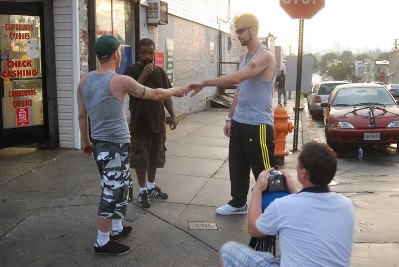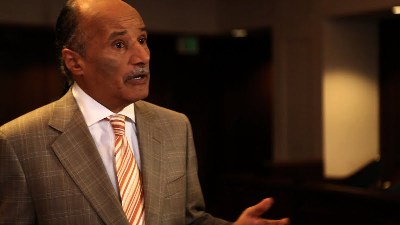by Bernd Debusmann Jr.
Mexican drug trafficking organizations make billions each year trafficking illegal drugs into the United States, profiting enormously from the prohibitionist drug policies of the US government. Since Mexican president Felipe Calderon took office in December 2006 and called the armed forces into the fight against the so-called cartels, prohibition-related violence has killed over 12,000 people, with a death toll of over 4,000 so far in 2009. The increasing militarization of the drug war and the arrest of several high- profile drug traffickers have failed to stem the flow of drugs -- or the violence -- whatsoever. The Merida initiative, which provides $1.4 billion over three years for the US to assist the Mexican government with training, equipment and intelligence, has so far failed to make a difference. Here are a few of the latest developments in Mexico's drug war:
Thursday, August 28
-
According to a study released by Mexican non-profit group Citizen Council for Public Security and Justice, Ciudad Juarez has become the most violent city on earth. With 130 murders per 100,000 people in 2008, Ciudad Juarez was considerably more violent than other cities with a high murder rate, such as Caracas, Venezuela, Medellin, Colombia, and New Orleans. The murder rate has gone up in 2009, with an average of 250 people being killed in Ciudad Juarez each month.
Friday, August 29
-
Five police officers and possibly one gunman were killed during a running gun battle in the state of Jalisco. The encounter began when a convoy of seven vehicles carrying at least 30 gunmen approached state policemen on a local highway. Four policemen were killed in the initial battle and the fifth was killed as police chased the assailants.
-
The aide of a Mexican federal agent who had been investigating the death of a crime reporter was found dead in Ciudad Juarez. Pablo Pasillas, 33, was secretary to the federal agent appointed to investigate the November killing of Armando Gutierrez, a crime reporter for El Diario. The first agent assigned to the case was shot dead outside his home in Ciudad Juarez.
Sunday, August 30
-
The defense lawyer for a convicted drug trafficker was found stabbed to death in his home in Toluca. America Delgado, 80, was the defense attorney for Tijuana cartel boss Benjamin Arellano Felix, who is now serving a 22-year sentence in prison. Delgado was found with his throat slit and with several stab wounds. The killing comes less than the month after another attorney for high profile drug traffickers was killed. Lawyer Silvia Raquenel Villanueva was gunned down in Monterrey on August 9th.
Monday, August 31
-
Four men have been arrested on suspicion of having committed 211 drug-related murders. Authorities have said that the four hitmen are tied to the enforcement arm of the Juarez cartel. Three of the men were presented to the media on Saturday in Mexico City. Omar Castro Rivera, 28, is accused of 93 homicides. Edgar Flores Martinez, 30, is accused of 87 homicides, and Cristian Enrique Franco Franco is accused of 22. A fourth suspect, Hector Armando Alcibar Wong, aka âThe Koreanâ, 21, was already in custody and is accused of 15 homicides. The men told authorities that most of their murder victims were involved in drug-dealing, extortion, and other crimes in Ciudad Juarez. Authorities also said that the three men confessed to the killing of five motorcyclists on January 25th in Ciudad Juarez. The five dead were reportedly killed because they were members of the âAAâ or Assassin Artists, a rival to the Juarez cartel. The group also confessed to the June 11 killing of five men in a motel.
-
Eight people were killed in the seaside town of Navolato, in the state of Sinaloa. The killings occurred when at least four heavily armed gunmen in a pickup truck began to fire into a crowd of partygoers. The dead included two boys, aged 15 and 16, and two females, aged 18 and 25. The shootings may be part of a recent wave of apparent vigilante attacks by armed squads suspected of working for drug cartels or the police. Two of the victims of the attack had criminal records for car theft. More than 30 carjackers and other low-level criminals have been murdered in Sinaloa in the last few months, according to local journalists.
Tuesday, September 1
-
The United States has released $214 million of the $1.4 billion in anti-drug aid promised to Mexico in 2007. The money is intended to fund equipment and training of Mexican security forces. Some detection gear has already been sent to Mexico during the summer, and a delivery of five Bell helicopters is due to be delivered to the Mexican army in the fall. Separately, law enforcement agencies on both sides of the border announced an agreement to improve cross-border communications and the creation of cross-border voice and data transmission networks for law enforcement.
-
In Ciudad Juarez a body was found hanging from a fence in a nightclub parking lot. Eight people were murdered in the same location several weeks ago.
Wedneday, September 2
-
17 people were killed when a dozen gunmen burst into a drug rehabilitation clinic in Ciudad Juarez. The 17 patients killed were lined up before being shot. Cartel gunmen have targeted drug rehab clinics several time in the past, accusing them of protecting rival gang members. In a separate incident, gunmen killed the deputy police chief of Michoacan. Jose Manuel Revueltas, 38, and two bodyguards, were killed after their vehicle was attacked by heavily armed gunmen just blocks away from his office in Morelia.
Total reported body count for the week: 149
Total reported body count for the year: 4,736
Read last issue's Mexico drug war report here.
